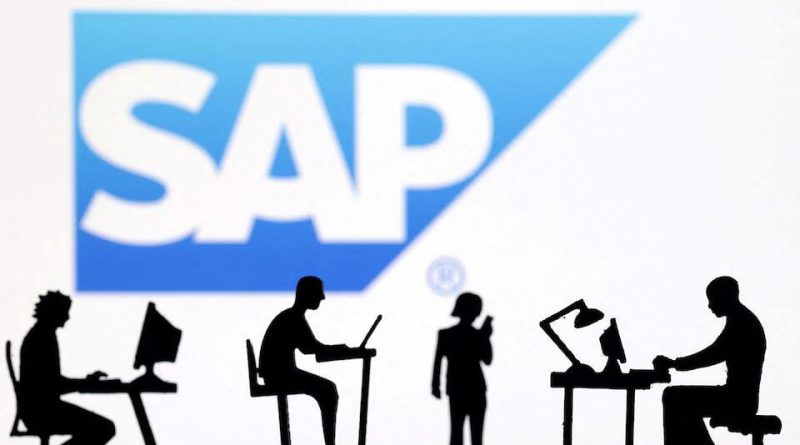SAP Considers Renewed $4.5 Billion Bid for Accounting Software Firm BlackLine
After its $4.5 billion offer was rejected in June, German software giant SAP is reportedly weighing a fresh approach to acquire U.S.-based BlackLine, aiming to strengthen its cloud and financial automation portfolio ahead of 2026.
Germany’s SAP, one of the world’s leading enterprise software providers, is considering a renewed attempt to acquire accounting automation company BlackLine after an earlier $4.5 billion offer was turned down, according to a source familiar with the matter.
The potential acquisition could mark one of SAP’s most strategic moves in recent years as it looks to bolster its capabilities in cloud-based financial management and automation tools.
SAP had initially submitted a formal offer of $66 per share on June 18, representing a 31 percent premium over BlackLine’s 60-day average trading price of $50.50.
The proposal, which did not require external financing, was declined by BlackLine’s management, who reportedly sought a higher valuation and greater strategic alignment.
Despite the rejection, SAP is now believed to be re-evaluating the opportunity and may reopen negotiations, though no new formal offer has yet been made.
The potential deal underscores SAP’s ambitions to expand its footprint in financial software and automation — areas that are increasingly critical for large enterprises transitioning to cloud ecosystems.
BlackLine’s technology, which streamlines accounting processes such as reconciliation, journal entry, and financial close management, would complement SAP’s suite of enterprise resource planning (ERP) and cloud services.
BlackLine, based in Los Angeles, counts SAP as one of its biggest customers, contributing nearly 30 percent of its total revenue.
This existing relationship could make integration smoother and strengthen SAP’s HANA cloud platform — an area where the company has been working to accelerate adoption.
Analysts say acquiring BlackLine could help SAP simplify data migration for customers and enhance the value of its cloud offerings.
Clearlake Capital, a private equity firm that holds nearly 9 percent of BlackLine’s shares, would play a key role in any potential deal as one of the company’s largest shareholders.
Other significant stakeholders include The Vanguard Group and BlackRock, both of which hold shares through their respective investment funds.
Clearlake’s involvement is seen as influential in shaping any renewed offer discussions, given its reputation for driving shareholder value and openness to mergers and acquisitions.
When news of SAP’s earlier offer surfaced, BlackLine’s shares rose by as much as 12 percent on the Nasdaq exchange before settling to close 3.8 percent higher.
Market analysts viewed the news as a sign that investors believe a new bid — possibly in the low-to-mid $70s per share range — could be accepted if SAP revises its proposal.
Citi analysts echoed this sentiment, suggesting that a slightly higher bid could tip the balance in SAP’s favor.
BlackLine’s stock performance in recent quarters has attracted attention from activist investors due to its underperformance compared with peers in the financial software market.
Despite having what analysts describe as a “best-of-breed product,” the company’s growth trajectory has slowed amid increased competition and broader market pressures.
A buyout by SAP could inject fresh momentum into its business, offering both stability and scale.
For SAP, the acquisition would be strategically valuable. The company has been facing challenges in rapidly migrating customer data from legacy systems to its modern HANA cloud infrastructure.
Integrating BlackLine’s automation tools could simplify and accelerate that process, helping SAP retain enterprise clients who are seeking faster, more efficient financial operations in a cloud-first world.
Industry observers note that SAP’s renewed interest in BlackLine reflects broader trends in enterprise technology, where automation, analytics, and artificial intelligence are increasingly shaping the future of financial management.
By adding BlackLine to its ecosystem, SAP could not only strengthen its cloud-based finance capabilities but also compete more aggressively against U.S. software rivals like Oracle and Workday.
While SAP, JPMorgan (its financial advisor), and Clearlake have all declined to comment publicly, insiders believe that the renewed talks may hinge on market conditions and shareholder sentiment in the coming months.
For now, the company appears to be carefully evaluating the financial and strategic implications before making its next move.
If a new offer does emerge, it could signal a wave of renewed consolidation within the enterprise software sector, where firms are seeking to acquire innovative platforms to meet the growing demand for automation and AI-powered solutions.
For SAP, acquiring BlackLine would represent not just a financial investment but a step toward redefining its position in the rapidly evolving world of digital finance.



